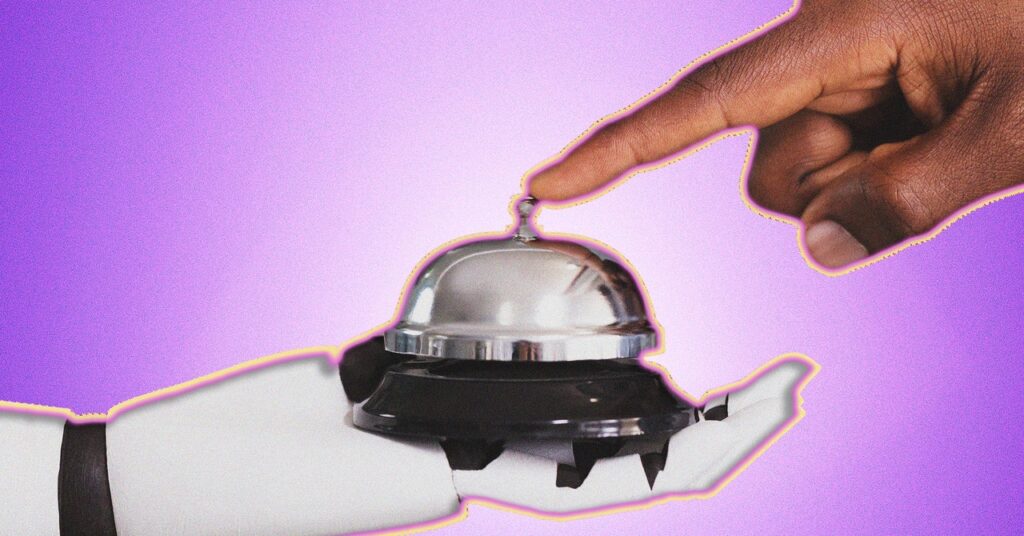A nice woman voice greets me on the phone. “Hello, I’m a helper named Jasmine from Bodega,” the voice says. “How can I help?”
“Do you have patio seats,” I ask. Jasmine sounds a little sad when she tells me that, unfortunately, the San Francisco-based Vietnamese restaurant does not have outdoor seating. But his sadness is not the result of having had a bad day. Rather, its tone is a characteristic, a setting.
Jasmine is a member of a new growing clan: the host of the AI voice restaurant. If you’ve called a restaurant in New York City, Miami, Atlanta, or San Francisco recently, chances are you’ve spoken to one of Jasmine’s polite and calculated competitors.
In the sea of AI voice assistants, hospitality phone agents have not received as much attention as consumer-based generative AI tools like Gemini Live and ChatGPT-4o. However, the niche is heating up, with several emerging startups competing for restaurant accounts across the United States. Last May, voice ordering AI got a lot of attention at the National Restaurant Association’s annual food show. Bodega, the high-end Vietnamese restaurant I called, used Maitre-D AI, which launched primarily in the Bay Area in 2024. Newo, another new startup, is currently implementing its software in numerous restaurants from Silicon Valley. Year-old RestoHost now answers calls at 150 restaurants in the metro Atlanta area, and Slang, a voice AI company that started focusing exclusively on restaurants during the Covid pandemic -19 and announced a $20 million funding round in 2023. land in the New York and Las Vegas markets.
All offer a similar service: a 24/7 AI phone host who can answer generic questions about the restaurant’s dress code, cuisine, seating arrangements and food allergy policies. They can also help you make, modify or cancel a reservation. In some cases, the agent may direct the caller to an actual human, but according to RestoHost co-founder Tomas Lopez-Saavedra, only 10 percent of calls result in this. Each platform offers restaurant subscription levels that unlock additional features, and some of the systems can speak multiple languages.
But who even calls a restaurant in the age of Google and Resy? According to some of the founders of AI voice host startups, many customers do, and for a variety of reasons. “Restaurants get a high volume of phone calls compared to other businesses, especially if they’re popular and take reservations,” says Alex Sambvani, CEO and co-founder of Slang, which currently works with everyone from restaurant group Wolfgang Puck to Chick-fil. -A at the fast-casual chain Slutty Vegan. Sambvani estimates that establishments with demand receive between 800 and 1,000 calls a month. Callers tend to be last minute bookers, tourists and visitors, senior citizens and those running errands while driving.
Matt Ho, the owner of Bodega SF, confirms this scenario. “The phones would ring constantly throughout the service,” he says. “We were getting calls for basic questions that can be found on our website.” To solve this problem, after shopping, Ho found Maitre-D to be the most suitable. Bodega SF became one of the startup’s first customers in May, and Ho even helped the founders with trial and error testing before launch. “This platform makes the host’s job easier and does not disturb the guests while they are enjoying the food,” he says.



